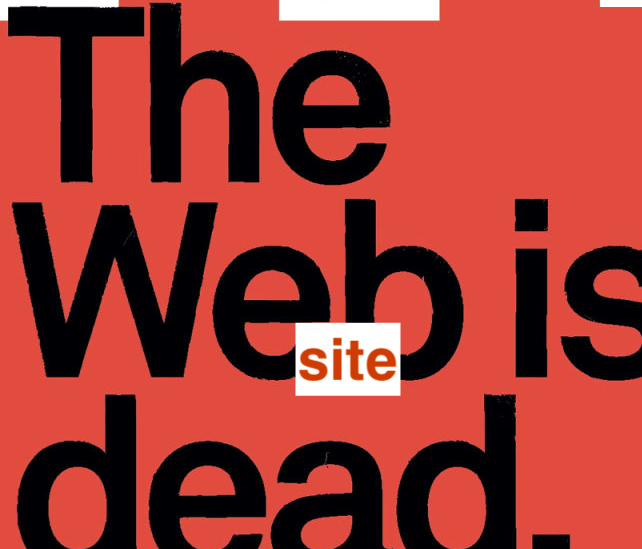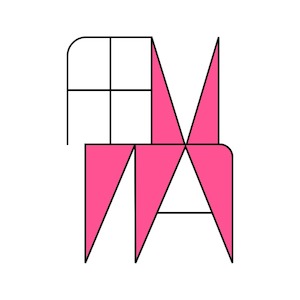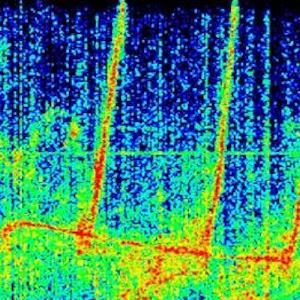Tell us a bit about the formation of Akaliko?
Conceptualised by late 2013, Akaliko started in early 2014. The initial need was to accommodate original sounding artists from Dhaka and beyond. There was no record label that backed the various upcoming artists from Dhaka's Electronica Scene, consequently the 'infamous' online community that pretty much established the electronica scene in Dhaka by late 2010. By 'establishing the scene' - I mean, creating representation in a proper way. Yes off-course there has been a thriving party scene amongst the upper echelons of Dhaka. Yet society and institution at large never supported the emerging electronic music and artists, as we expected it to. Akaliko started as net-label which was releasing Dhaka Electronica scene as compilations. Recently the label has started to release singles and EPs in a consistent manner. Coloured by a variety of artists from Dhaka and other regions of Bangladesh, and eventually reaching out to artists and listeners outside Bangladesh.
What does the word 'Akaliko' mean?
The word, Akaliko means 'Timelessness" in Pali language, which is basically the language in which Buddhist scriptures are written. Somewhat of an intermediary language between Sanskrit to Bangla. The notion behind the name is to create and support music that will 'stand the test of time'. The label was formed initially by me and soon Vru Patel from Boston helped to materialise many facets of the Akaliko. We met while collaborating on my own EP, released on a now defunct Indian label called DIYM Netlabel. A connection between Dhaka and Boston was forged.
What is Akaliko trying to achieve? In context between Bangladesh and electronic music.
Akaliko has a bias towards electronica in general and has gradually included many artists beyond the regular 4/4 dance paradigm. The diversity we seek as a label stems from various reasons. Primarily, the choice for unorthodox electronic sounds is an attempt to find the narrative (sound) of the city. This experience has been a challenge that we have faced from the very beginning. Secondly to offer music enthusiasts access to emerging Bangla talent in electronic music. Alternative sounds and forms have their place specially in a city where dance culture has never been 'a thing' and we wanted to reflect that in our little way. Not that we don't have 4/4 music but we are more inclined to artists who step out of the given roles and genres. Those who are experimental, esoteric and daring with their music. We were surprised many times by what it can actually mean when we transgress via sound, which leads to endless new possibilities. Recently Akaliko was part of the biggest art festival in the country - "Dhaka Art Summit" in 2016 and 2018. While Akaliko represents several DJs from Bangladesh on it's artist roster, some of the artists are live acts projecting the 'experimental spirit'. Currently the artists are based in Dhaka, Khulna, Boston, Berlin, Colombo, Bangkok.
What is the current electronic music scene in Bangladesh? Whats good? What missing or bad?
There is a general negative outlook amongst the populace of our country regarding electronic music. Cliched as it sounds, like many Asian nations, electronic music and such things are easily clubbed with alcohol and drugs, a sense of shame. Consequently its never an ideal choice for corporates and institutions who adhere to orthodoxy in most cases. It is "bideshi (foriegn) music" for a vast majority of Bangladeshis. Rock music makes an exception to that hegemony. However, at this point it's promising. As things change slowly. Not having a specific 'scene' or 'club culture' in Bangladesh is contrast to the millions of young Bangladeshis with internet access, to new music, to software and to emerging genres from the west. This resulted in many artists creating music not targeted for entertainment and dance. Hence the kind of variety that exists inside a vacuum could be seen as a bliss. However if the native talent here is properly groomed and given ample motivation, Bangladesh could be on the electronic music map of the world. New ideas and motivation always strikes in places or societies which are largely orthodox. The music industry in general in Dhaka is way behind India, and even Pakistan and Sri Lanka. Pakistan is full of poise with raw talents in electronica and even rock and punk and Sri Lanka is witness to a big tourist economy, hence enjoys increasing cultural openness. Here in Bangladesh we are often reminded of a xenophobic past that looked down on anything 'new' as 'foreign'. The resistance to new emerging culture is linked to the orthodox nature of society. You can see that fear in our book fairs which out-size similar events in South Asia, yet remains closed to outside input, influence and exchange. Unless and until the content is in Bangla and is published by a local publisher. But Bangladeshi youth is waking up and asserting their rights on many social and cultural fronts, increasingly against the orthodoxy, inequality and corruption.
What is Akaliko trying to achieve? In context between Bangladesh and electronic music.
Akaliko has a bias towards electronica in general and has gradually included many artists beyond the regular 4/4 dance paradigm. The diversity we seek as a label stems from various reasons. Primarily, the choice for unorthodox electronic sounds is an attempt to find the narrative (sound) of the city. This experience has been a challenge that we have faced from the very beginning. Secondly to offer music enthusiasts access to emerging Bangla talent in electronic music. Alternative sounds and forms have their place specially in a city where dance culture has never been 'a thing' and we wanted to reflect that in our little way. Not that we don't have 4/4 music but we are more inclined to artists who step out of the given roles and genres. Those who are experimental, esoteric and daring with their music. We were surprised many times by what it can actually mean when we transgress via sound, which leads to endless new possibilities. Recently Akaliko was part of the biggest art festival in the country - "Dhaka Art Summit" in 2016 and 2018. While Akaliko represents several DJs from Bangladesh on it's artist roster, some of the artists are live acts projecting the 'experimental spirit'. Currently the artists are based in Dhaka, Khulna, Boston, Berlin, Colombo, Bangkok.
What is the current electronic music scene in Bangladesh? Whats good? What missing or bad?
There is a general negative outlook amongst the populace of our country regarding electronic music. Cliched as it sounds, like many Asian nations, electronic music and such things are easily clubbed with alcohol and drugs, a sense of shame. Consequently its never an ideal choice for corporates and institutions who adhere to orthodoxy in most cases. It is "bideshi (foriegn) music" for a vast majority of Bangladeshis. Rock music makes an exception to that hegemony. However, at this point it's promising. As things change slowly. Not having a specific 'scene' or 'club culture' in Bangladesh is contrast to the millions of young Bangladeshis with internet access, to new music, to software and to emerging genres from the west. This resulted in many artists creating music not targeted for entertainment and dance. Hence the kind of variety that exists inside a vacuum could be seen as a bliss. However if the native talent here is properly groomed and given ample motivation, Bangladesh could be on the electronic music map of the world. New ideas and motivation always strikes in places or societies which are largely orthodox. The music industry in general in Dhaka is way behind India, and even Pakistan and Sri Lanka. Pakistan is full of poise with raw talents in electronica and even rock and punk and Sri Lanka is witness to a big tourist economy, hence enjoys increasing cultural openness. Here in Bangladesh we are often reminded of a xenophobic past that looked down on anything 'new' as 'foreign'. The resistance to new emerging culture is linked to the orthodox nature of society. You can see that fear in our book fairs which out-size similar events in South Asia, yet remains closed to outside input, influence and exchange. Unless and until the content is in Bangla and is published by a local publisher. But Bangladeshi youth is waking up and asserting their rights on many social and cultural fronts, increasingly against the orthodoxy, inequality and corruption.
Tell us a bit about VRU Patel ?
Vru brought the Akaliko idea to reality with his design aesthetics and creative skills. He designed the Akaliko logo. Eventually his music and inputs helped shape the label's identity. I am not ashamed to say, that a lot of things Akaliko has done and is planning upon, is stemming from an obligation after listening to Vru and others artists on Akaliko. The real reason we exist is based on the premise that it would be a shame if all this wonderful music is not heard by the public. We do not aspire to have millions of listeners but create the diversity and space for artists to express their creativity. Vru has been a passionate DIY producer since 2012 and through him we have created a connection between Dhaka and Boston. We are about to release Vru's alias 'Solarein's EP in January 2019.
Future plans of Akaliko for 2019?
A lot of releases from our roster of artists. We are getting around in terms of connecting with the international music distribution process.We are pretty much the 1st generation of artists, DJs and producers to represent something uniquely native. The past years work has helped us to figure what is missing in the new music scene. How can artists from grassroots be represented and create sustainable work for more artists. Akaliko is extending it's roles beyond a traditional music label. Currently we are in process of building an artist residency plus a native portal to showcase contemporary urban Bangladeshi music. We find it absurd that in a country of 165 million people, there are no publications dedicated to youth music. However many forms of music, traditional and new are a part of everyday life in society. The existing lack of infrastructure can only be changed from within with local efforts, voices and resources. Our aim is to build such mechanisms which would pan out in the future, to benefits artists from Akaliko and Bangladesh in general.
More About Akaliko and Electronica in Dhaka.
Psychosis - Vru Patel
Nyurutsu - Humairah Shams
Dhaka Noise Project - Maleena Gomez
Akaliko Records Banner - Vru Patel































0 -